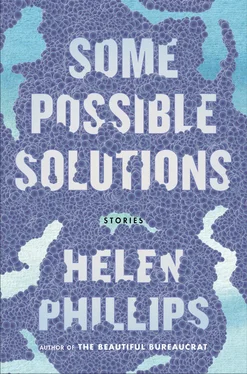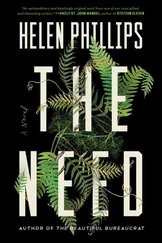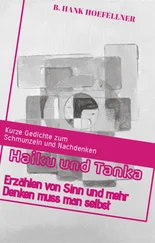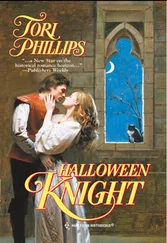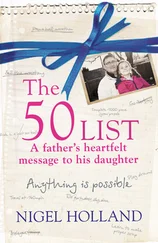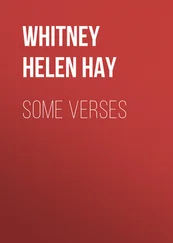I have two of them, a boy and a girl, and they’re always looking upward, or almost always, always pointing up, up, branches, birds, planes, moon, stars, planets , and there’s no way I can keep them inside now that the tornado is here. Their sticky feet rush them down the stairs, out the front door, across the porch, down the steps, across the yard.
I stand in the doorway screeching their names, the human names we gave them when they arrived half a decade ago— Bill! Lill! — but they’re already past the gate, bound for the road. They look back at me kindly (pityingly?) but continue onward, fast, their bare feet unstopped by the gravel, the lost nails. See, it’s just small hints, the toughness of their soft feet, miniature clues — but that’s how we know. Or rather, how I know, since Thomas doesn’t believe, nuzzling their damp heads on watermelon nights in August as though they’re children like any others. In the summertime they sweat and glow all night long, those two, and that’s another clue right there.
I step out, away from the doorway and onto the porch. The row of trees Thomas planted soon after they arrived is flattening in the wind, I mean flattening , and then a handful of tin cans shoots past the house like birds of the future, and my dress is alive with a will of its own, and I cling to the railing and scream for them, but they’ve already scooted under the barbed wire.
Thomas is yelling something, hanging on to the stone foundation, coming around from the backyard, where he was checking on things. I can’t hear him but I know he wants to know where the kids are.
I don’t answer him, I keep shrieking their names. They’re still within sight, but barely, dark figures on the far side of Field 1. The air is green and the wind is clever.
Thomas curses when he spots them. “You couldn’t keep them inside.”
He’s just stating it, he’s not accusing me. He knows better than anyone how they are, always talking to each other in a language we don’t understand, always putting jam on their hot dogs. They’ve never belonged to us, not even for a second.
Thomas lets go of the stonework and takes a wind-bashed step across the front yard toward the garage.
“The county said no motor vehicles on the roads,” I say, coming down the steps and across the yard behind him. My dress blows up into my face, smothering me.
Thomas yanks me into the cab of the truck. The wind slams the door. I pull my dress away from my face and look at him. He’s got a big head, my husband, big like the head of a Saint Bernard, and my head is nothing to sneeze at either. While Bill and Lill have small shapely heads.
“Center Road to Field 5?”
I nod. It’s as good a plan as any. They’ve got to be halfway through Field 3 by now. Thomas puts the truck into reverse.
“This is dangerous,” I say.
“Oh yeah,” Thomas says. I can’t tell if he’s agreeing or being sarcastic or what. Isn’t it weird how you can be married to someone for eleven years and still not know.
“But maybe not for aliens,” I add.
“Spare me,” he says.
We’ve been through this a million times. He refuses to admit what they are. Though they never bleed, not even when they get their vaccination shots or skin their knees. A puncture dot, a raw spot, but never a drop of blood. “Why do they never bleed?” I’ll ask him, and he’ll say, “They never bleed because they’re our kids and they’re tough as nails.”
But the reason they never bleed is because of their skin. Sure, it’s a subtle enough thing, it’s not like you’d pick them out of a crowd of kids, but when you’re the one who bathes them and lotions them and scratches their backs as they fall asleep, you know these things, and I know that their skin has a plastic quality, a durability far greater than mine.
I’ve overheard Thomas telling the guys that I’m crazy, on that front at least. I love her to death, but. She thinks the kids are aliens.
Aw, hell, Mark or Matthew or Tim or whoever says, putting his feet up on the porch railing. Yeah. My kids are aliens too. God, they’re monsters. They’re zombies. Hell, I don’t know what they are. Trolls.
And I go silently about my planting or weeding or whatever while my aliens do somersaults on the grass around me like any other kids. His ability to deny them is a testament to their artful, maybe even desperate, efforts to blend in.
“You know,” Thomas says now, making the sharp right onto Center Road, “if you keep talking this way about the kids, one of these days I’m going to have to leave you.”
Thomas will never leave me, but before I get the chance to say it, a raccoon flies across the road. The creature seems surprisingly calm, soaring alongside a cluster of dirty napkins. I look at Thomas and Thomas looks at me. If this tornado can lift a twenty-pound mammal off the ground, what does that mean for our two forty-pounders?
Their slender skeletons, their halos of wild hair. Their oversized eyes.
Because let me be clear: them being different doesn’t mean a thing. It’s just a funny little fact about them, a little secret I know, the way you’d know if your kid still wet the bed or sucked her thumb in third grade. Do I worry sometimes that it’ll become a problem someday, that their nature will make itself known at the wrong times, that they’ll be filled with cosmic longings impossible to satisfy? Well, yes, of course. But for now it’s harmless enough.
The wind pushes against the truck like a giant palm. Thomas and I have a duet of muttering and cursing and hoping as he steers past Field 3.
“There!” Thomas shouts.
They’re not running anymore, they’re standing in the dead center of Field 5 like aliens awaiting their long-lost spaceship.
And I begin to panic for real. I’ve known all along, with a mother’s knowledge, that they’ll survive the tornado. They’ve done more daredevil things than I can count, things involving sleds, tire swings, train tracks, this disregard for their physical safety another hint of what they really are, but I’ve never considered the possibility that they might leave me. That they might actually pick up and head back to wherever they came from. They’re mine, through and through, and I don’t care a bit about the rules of some other planet — I’ve loved them and raised them with the best love there can be on any end of the universe, so help me.
In the height or depth of my labor, when everything was blurry and impossible, when I was vomiting and humming and the sky was day and night and day and night at the same time, I found myself suddenly calm, perched on a narrow precipice of calm, and here they came, luminous twin bubbles floating toward me in a beam of green light that overmastered the hospital’s fluorescence, and I opened my mouth and the beam sizzled on my tongue and deposited there its greenish gift and I swallowed the two elegant bubbles, and the calm was gone and I had to hum and hurt and hum and hurt for a while longer, and then they were stuck, halfway in and halfway out, and the nurse said, Feel the head! Feel the head! , and I felt a head, and it felt sublime, it felt wrong to feel a head coming out of yourself like that, and then they were born all at once, both of them within ninety seconds, my tiny perfect children, a detonation in my heart. I’ll never know what happened to the other pair of twins I carried for nine months, whether the aliens infected them with their alien souls, or whether they replaced them altogether, or whatever.
But anyway, from that very first instant, I was fierce about them. The clichés don’t begin to do it justice — I’d throw myself in front of any bus, I’d give them every garment off my back, I’d drain myself dry over and over again, forever, gladly.
Читать дальше
